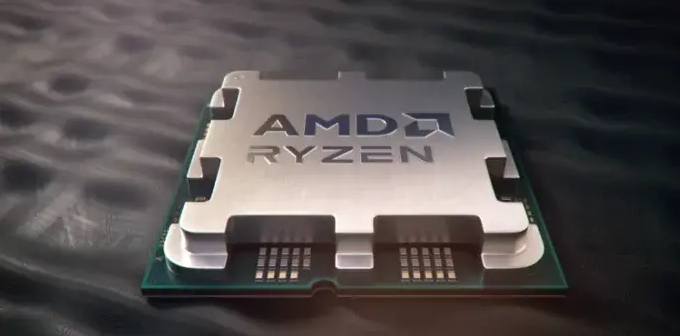News
Overheating on AMD Ryzen 7000 Processors (update): Root Cause Identified in EXPO and SoC Voltages

Concerns have been raised on Reddit by a number of users whose AMD Ryzen 7000X3D CPUs have overheated and even malfunctioned as a result of the problem. It has been hypothesized, based on certain posts on Reddit, that the 3D V-Cache SRAM tile that sits atop the CCD chiplet may be becoming too hot when motherboards push CPU clock speeds to an extremely high level, which results in insufficient cooling for the chiplets. However, there is not enough evidence to make solid conclusions based on these posts. AMD does not include an unlocked multiplier on these CPUs so that users can manually overclock them because the company wants to avoid the issues that could arise from doing so.
Nevertheless, a malfunction may still occur if the automatic overclocking procedure carried out by the motherboard is performed with an excessive amount of force. Insufficient cooling or faulty sockets or motherboards are common causes of damage; nevertheless, insufficient cooling can also result in damage. In addition, the failure of a processor might be brought on by an outmoded or flawed version of the BIOS that automatically overclocks the CPUs. Recent events have resulted in Asus issuing a recall for older versions of its BIOS software for a number of its AMD X670-based motherboards because of problems with automatic CPU overclocking.
Despite this, some of these obsolete BIOS versions are still available, which increases the risk of a CPU crash. A user on Reddit by the name of Nolmir87 revealed information that a YouTube channel in Russia that is well-known for repairing GPUs has received many Asus motherboards and Ryzen 7000X3D AM5 CPUs that have burnt in the same location. Both the socket and the CPU have failed, and we anticipate receiving further motherboards and CPUs that need to be repaired.
Update:
Although AMD has not officially addressed the matter, anonymous insiders have offered insights into the problem and the company’s anticipated solution. Both standard Ryzen 7000 and the more recent Ryzen 7000X3D chips are impacted by the issue, with the latter being more susceptible. The core of the problem lies in the SoC voltages being increased to unsafe levels, either through pre-set voltages in EXPO memory overclocking profiles or manual adjustments by users. As a result, the chips’ thermal sensors and protection mechanisms are compromised, causing overheating and physical damage. AMD intends to implement a fix involving a voltage cap or lock in the firmware/SMU, restricting voltage levels from exceeding an unspecified limit.
However, savvy motherboard manufacturers may discover ways to bypass this cap. Several vendors have already released new BIOS updates to address some of the issues, but failures persist on boards from other manufacturers. To safeguard their chips from additional harm, users should monitor their SoC voltage in the BIOS or by using utilities like HWiNFO, disable EXPO profiles, or manually adjust the voltage to secure levels. Extreme overclockers may face reduced overclocking limits due to the impending voltage cap. This issue impacts all motherboard brands and is not covered under warranty. AMD is working diligently to rectify the situation and is expected to release an official statement in the near future.













